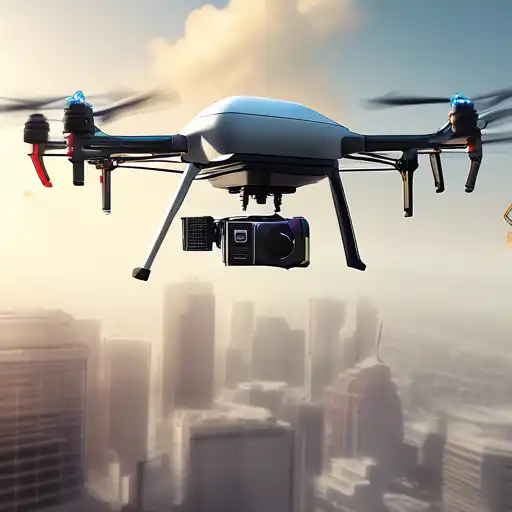Unlocking the Potential of Commercial Drones
Commercial drones, also known as unmanned aerial vehicles (UAVs), are revolutionizing industries across the globe. From agriculture to real estate, and from delivery services to disaster management, the applications are vast and varied. This technology offers businesses the opportunity to enhance efficiency, reduce costs, and open new revenue streams.
Industries Benefiting from Drone Technology
Several sectors are leveraging drone technology to gain a competitive edge:
- Agriculture: Drones are used for crop monitoring, spraying, and surveying, significantly improving yield and reducing manual labor.
- Construction: Site surveys, progress monitoring, and inspections are now more efficient and safer with drones.
- Delivery Services: Companies like Amazon and UPS are experimenting with drone deliveries to reduce delivery times and costs.
- Photography and Filmmaking: Drones provide unique aerial perspectives that were previously costly or impossible to achieve.
Navigating the Regulatory Environment
While the opportunities are immense, the regulatory landscape for commercial drones is complex and varies by country. In the United States, the Federal Aviation Administration (FAA) requires commercial drone operators to obtain a Part 107 certification. This ensures that operators understand airspace regulations, operating requirements, and safety protocols.
Similarly, the European Union Aviation Safety Agency (EASA) has established regulations that classify drones based on their risk level, requiring operators to adhere to specific rules depending on the category of their drone operations.
Future Trends in Commercial Drone Usage
The future of commercial drones is bright, with advancements in technology paving the way for more innovative applications. Key trends include:
- Autonomous Drones: With improvements in AI and machine learning, drones are becoming more autonomous, capable of performing complex tasks without human intervention.
- Increased Battery Life: Technological advancements are leading to longer flight times, enabling drones to cover larger areas and perform more tasks on a single charge.
- Integration with IoT: Drones are increasingly being integrated with the Internet of Things (IoT), allowing for real-time data collection and analysis.
As the commercial drone industry continues to evolve, staying informed about the latest opportunities and regulations is crucial for businesses looking to leverage this transformative technology. For more insights into how drones are changing the business landscape, check out our technology trends section.
